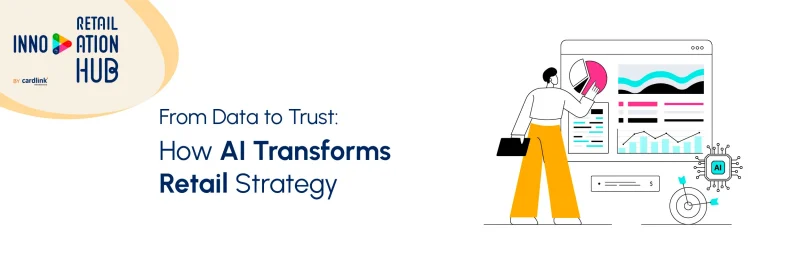Leveraging customer data to predict trends in retail

More data = Greater competitive advantage!
In the ever-evolving landscape of the retail industry, understanding consumer behavior, and consequently predicting future needs, has become more essential than ever. The most powerful tool businesses now have to serve this purpose is customer data, which includes information such as purchase history, preferences, demographics, interactions with the business, and feedback.
Data can be collected through physical or online points of sale, company apps, loyalty programs, social media, and more. This vast source of information, when properly analyzed, provides valuable insights into the timing, manner, and reasons behind a customer’s purchase, but most importantly, it offers clues about their potential future actions.
The need to predict trends
Technological advancements have radically changed how businesses operate and how consumers shop. Data helps retail businesses identify shifts in product demand, preferences, and consumer patterns.
Today’s consumers not only expect but consciously seek personalized experiences from brands, an outcome of increased connectivity, social media, and real-time interaction capabilities. In fact, 3 out of 4 consumers are more likely to purchase from a business offering personalized experiences and will spend 37% more money.
The ability of businesses to predict consumer trends is no longer just a marketing tool but a necessary strategy to cope with market volatility. The rapid pace of change demands quick and timely responses; otherwise, businesses risk falling behind their competitors.
Decoding consumer behavior through technology
Technologies such as data analytics and machine learning enable businesses to process vast amounts of data and extract useful insights. This allows the identification of consumer patterns, trends, and behaviors that might otherwise remain hidden.
Artificial intelligence (AI) further enhances data analysis capabilities by generating personalized forecasts, from product recommendations tailored to each consumer to inventory management aligned with expected demand.
Benefits for businesses
Leveraging data leads to clear advantages for businesses by increasing customer satisfaction and loyalty through experiences that meet diverse needs and desires. Trend prediction also boosts operational efficiency via targeted strategies, promotional campaigns, and better inventory management. Overall, data and its effective use create a competitive edge, as companies that recognize the need and adapt quickly to changing conditions stay informed about market developments and outperform competitors. According to research, retail businesses that fully utilize big data in daily operations can achieve up to a 60% increase in profitability.
The challenges
Data privacy protection is, of course, paramount. Compliance with GDPR, transparency in data use and storage, and obtaining customer consent are essential prerequisites. Eighty percent of consumers consider it important for businesses to have a clear and transparent data management policy, while 71% are discouraged by companies that request data but do not explain how it will be used.
Furthermore, data analysis requires specialized tools and personnel. Without these, businesses risk misinterpreting or incorrectly analyzing information. According to “The State of Dark Data” survey, 60% of respondents reported that half or more of their organization’s data ends up as “dark data” (collected and stored but unused).
Finally, to maximize data utilization effectively, companies must invest in technology, infrastructure, and staff, a high upfront cost with strategic payoff.
Strategies for effective data utilization
Implementing pilot programs allows businesses to identify challenges on a small scale before full deployment. Simultaneously, developing partnerships with specialized technology and data analytics firms and fostering a continuous learning culture help maintain flexibility and competitiveness even as trends evolve rapidly.
Data is no longer just a technological burden but, with proper management, a strategic asset. Companies that consciously invest in understanding their data build trust with consumers, create more comprehensive and better experiences, and gain an advantage over the competition.
Discover more about the future of retail and the opportunities offered by technological advancements in the “Retail Innovation Report 2024” by Cardlink, a Worldline brand, in collaboration with Found.ation.


